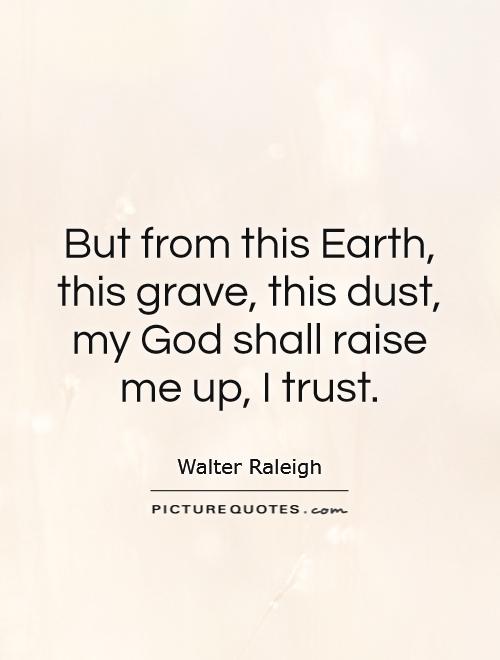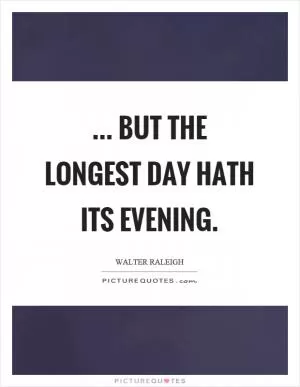But from this Earth, this grave, this dust, my God shall raise me up, I trust

But from this Earth, this grave, this dust, my God shall raise me up, I trust
Sir Walter Raleigh was a prominent figure in English history, known for his military exploits, exploration of the New World, and his involvement in the court of Queen Elizabeth I. However, he is perhaps best remembered for his eloquent poetry and profound reflections on life, death, and faith. One of his most famous lines, "But from this Earth, this grave, this dust, my God shall raise me up, I trust," encapsulates his belief in the power of resurrection and the hope of eternal life.Raleigh's life was marked by both triumph and tragedy. He experienced the heights of success as a favorite of Queen Elizabeth, who granted him lands, titles, and wealth. He also faced the depths of despair, enduring imprisonment, political intrigue, and ultimately, execution. Throughout it all, Raleigh maintained a steadfast faith in God and a belief in the promise of resurrection.
The line "But from this Earth, this grave, this dust, my God shall raise me up, I trust" reflects Raleigh's unwavering confidence in the divine power to overcome death and bring about new life. In the face of his own mortality, Raleigh found solace in the belief that his earthly existence was not the end, but rather a transition to a higher state of being. This hope sustained him through the trials and tribulations of his life, giving him the courage to face death with dignity and grace.
Raleigh's words resonate with a timeless truth that transcends the boundaries of time and space. They speak to the universal human experience of grappling with the mysteries of life and death, and finding comfort in the belief that there is a greater purpose beyond our earthly existence. In an age marked by uncertainty and upheaval, Raleigh's message of hope and faith continues to inspire and uplift those who seek meaning and purpose in the face of adversity.












 Friendship Quotes
Friendship Quotes Love Quotes
Love Quotes Life Quotes
Life Quotes Funny Quotes
Funny Quotes Motivational Quotes
Motivational Quotes Inspirational Quotes
Inspirational Quotes